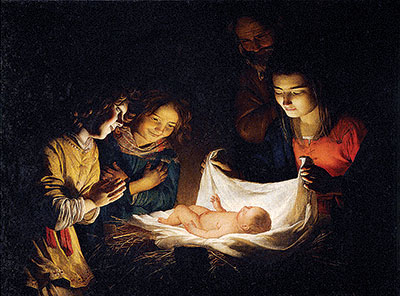 It’s easy to forget just how unique Christianity is. That may be because the world we live in has been so influenced by faith in Christ, so structured and shaped by all things Christian over the past two millennia, that we’re almost always looking at the Jesus narrative from inside it. And that remains true (for now), despite the marked decline in religious belief and practice over the past century that has many calling our era “post-Christian.”
It’s easy to forget just how unique Christianity is. That may be because the world we live in has been so influenced by faith in Christ, so structured and shaped by all things Christian over the past two millennia, that we’re almost always looking at the Jesus narrative from inside it. And that remains true (for now), despite the marked decline in religious belief and practice over the past century that has many calling our era “post-Christian.”
Disaffiliation and apostasy are serious matters, but the term “post-Christian” makes me laugh, because the Incarnation makes it impossible to place any age, culture or society beyond the reach of Christ. Jesus of Nazareth isn’t just an unexpected plot twist in an ancient fable or myth, and Bethlehem isn’t just a blip on humanity’s radar.
The Incarnation changes everything.
If we can manage to stop long enough to consider what we believe and teach as divine revelation, we Catholics may begin to see how deeply revolutionary and radical this really is.
If God is anything at all, He is mystery. Nothing reflects that more powerfully – or intimately – than the Incarnation. The One in whom “all things live and move and have their being” (Acts 17:28) enters His own creation in time and space. The God who is Being itself, who spoke the universe into being, comes to us as one of us. He does not play dress-up or “put on” humanity like a costume. Instead, He “empties himself” (Phil 2:7), takes all that is essentially human into Himself, and reveals His own divine nature through ours.
In Christ, God doesn’t give us a piece of divinity, but all of Himself. “For in Him dwells the whole fullness of the deity bodily” (Col 2:9). While men and women have been created by God in His image, Jesus is “the image of the invisible God, the firstborn of all creation” (Col 1:15).
Christ is Emmanuel, God-with-us. That did not end with His Ascension into heaven. Because of the Incarnation, God is with us always. Humanity and divinity are bound together, inseparably and eternally, in the person of Jesus Christ. Incarnation, then, is irrevocable. What makes us human doesn’t just reflect God; it is united to God forever.
The words in St. John’s Gospel are as poetic as they are powerful: “The word became flesh and made His dwelling among us” (Jn 1:14). For those of us who did not live in Judea or Galilee when He did, that becoming flesh, that dwelling among us is extended through time sacramentally in the Eucharist. When the priest invokes the Holy Spirit during the Eucharistic Prayer, Jesus once again becomes substantially present to us. He dwells among us in every tabernacle.
 “The Adoration of the Child,” a 17th-century painting by Dutch artist Gerard van Honthorst on display in the Uffizi Gallery in Florence, Italy.In a certain sense, every Christian is a re-incarnation of Jesus Christ. He takes flesh once again in our lives when we receive Him in the Eucharist. We become more like Him to the extent that we live our lives according to the Eucharistic paradigm He Himself lived and has given to us.
“The Adoration of the Child,” a 17th-century painting by Dutch artist Gerard van Honthorst on display in the Uffizi Gallery in Florence, Italy.In a certain sense, every Christian is a re-incarnation of Jesus Christ. He takes flesh once again in our lives when we receive Him in the Eucharist. We become more like Him to the extent that we live our lives according to the Eucharistic paradigm He Himself lived and has given to us.
In his “On the Incarnation,” St. Athanasius wrote, “The Son of God became man so that we might become God.” Because God became flesh, every aspect of our human lives can be consecrated. Our bodies, our intellects, our emotions and our wills are not only recipients of divine life, but participants in God’s divine nature.
The Incarnation did not change God, but it did change us. Some, such as the medieval Franciscan theologian John Duns Scotus, have argued that it was part of God’s plan from the beginning – even before sin; that the point of Christ’s coming wasn’t only to save us, but to be one with us.
Because God has skin in the game, the hope of glory seems less far away.
Jaymie Stuart Wolfe is a Catholic convert, freelance writer and editor, musician, speaker, wife and mom of eight grown children, loving life in New Orleans.


